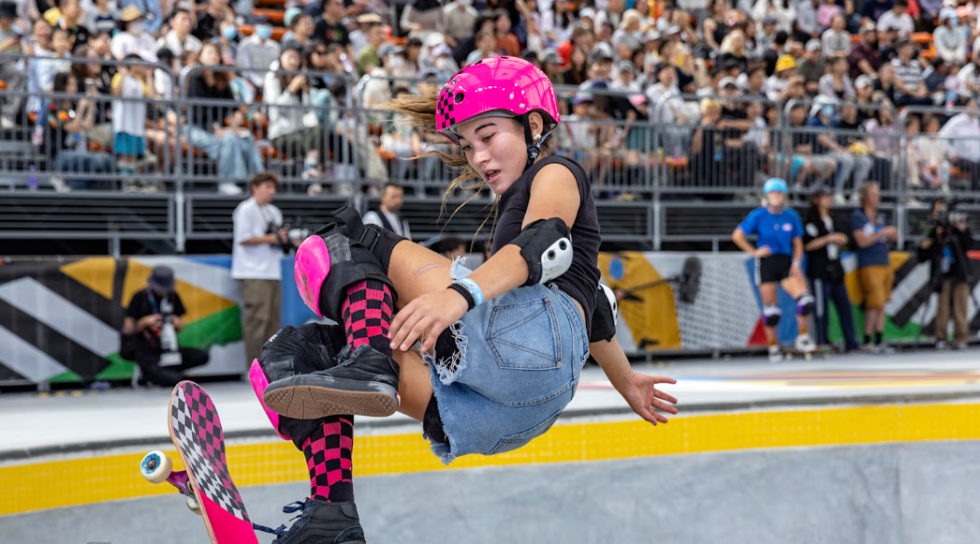
Ariarne Titmus turned swimming’s race of the century into a glorious golden personal procession.
Australia’s women’s 4x100m freestyle relayers stretched the nation’s dominance in the event to a remarkable fourth Olympics.
Elijah Winnington’s previously bitter Olympic experience now has a silver lining.
And Australia’s male 4x100m freestyle relayers captured a coveted silver medal on a stunningly successful opening night for the nation at the Paris pool.
The Dolphins harvested two gold and two silver medals from Saturday night’s four finals, helping Australia to top spot on the overall medals table after day one in Paris.
The 2019 world championships. The Tokyo Olympics in 2021. The 2022 Commonwealth Games. Last year’s world championships. Since 2018, Australian middle-distance swim star Ariarne Titmus has not lost a 400m freestyle final at an international race.
She certainly was not going to start on Saturday night, during the opening evening of swimming finals at the Paris Olympics. To the above list Titmus can now add Paris 2024 after seeing off Canadian prodigy Summer McIntosh and American swim great Katie Ledecky to win Australia’s first gold medal in the pool of this Games.
It had been billed as one of the marquee races of the swim program in Paris – the race of the decade, even the century. It was supposed to be a nail-biting contest. Instead it was a coronation. Titmus executed her race plan flawlessly, leading at every turn. McIntosh pushed her hard, but the Australian had half a body length by 250m and ultimately won by almost a second.
“I feel relieved,” Titmus said. “It’s a different feeling winning it again after the first time. I know what it takes to be an Olympic champion, I know how hard it is racing in these circumstances at an Olympic Games, it’s not really like anything else. The noise and atmosphere and pressure and village life definitely makes performing well hard. But I’m really happy to come out on top.”
Having defended her Tokyo 400m crown, the Tasmania-born swimmer became the first Australian woman since Dawn Fraser to defend an individual Olympic title in the pool.
“I can’t really believe that’s me to be honest,” she said. “I just look at myself and I’m so normal – I just love swimming, love getting out and representing our country and having fun. I hope no-one looks at me any differently – I’m just the same old goofy Tassie girl, out here living out her dream.
The Australian women’s relay team continued the golden opening evening for the Dolphins with an emphatic victory in the 4x100m freestyle later in the night. It is an event Australia has won at every Olympics since Beijing 2008, and they showed no sign of losing their crown. The Australian quartet touched ahead at every changeover, led out by Mollie O’Callaghan, followed by Shayna Jack and Emma McKeon, before Meg Harris anchored the team to victory and an Olympic record over a fast-closing China.
“As the years go on, the standards just get higher and higher,” said McKeon afterwards. “You look at the history in this event for Australia, and everyone wants to be a part of that – everyone works to be a part of that and the standards, the bar keep rising.”
Australia’s relay success continued just minutes later, in the final race of day one, with Kyle Chalmers – known as King Kyle for his dominant performances in clutch moments – anchoring the Dolphins in silver in the men’s 4x100m freestyle. Australia touched sixth at the initial change with Jack Cartwright, fifth at the second with Flynn Southam and fourth at the last changeover from Kai Taylor, before Chalmers moved through the pack to grab silver only a second down on the United States.
In the opening medal event of the evening, Elijah Winnington won silver in the men’s 400m freestyle in what was a frenetic, open affair. It was a moment of redemption for the 24-year-old, who competed in Tokyo with high hopes only to finish an unexpected seventh in the final. Winnington closed strongly to finish half a second down on Germany’s Lukas Märtens; Winnington’s compatriot Sam Short finished fourth.
Asked earlier on Saturday what he had learned from the Tokyo experience, Winnington said he just wanted to race with less pressure. “To go out and enjoy it,” he said. “I want to go out tonight and have fun and see what happens. If that’s a good result, that’s a good result.”
A good result it was – continuing a proud Australian tradition in a race that was once synonymous with the legendary Ian Thorpe.
In the first races of the evening, the women’s 100m butterfly semi-final, Australia’s McKeon progressed through to the final on Sunday in sixth-place. McKeon won bronze in the event in Tokyo; it is her only individual event on the program in Paris.
Titmus, meanwhile, will now turn her attention to the 200m freestyle, with a final on Monday. She is the defending Olympic champion in the four-lap discipline, but will face staunch competition against teammate and 2023 world champion Mollie O’Callaghan. Later in the meet Titmus will face Ledecky again in the 800m freestyle – the American has won the past three consecutive Olympic golds, but can expect a tough challenge from the in-form Australian.
“It’s fun racing the best in the world – it gets the best out of me,” Titmus said. “I really hope that all the hype lived up to its expectation.” The vocal, near-capacity crowd on Saturday at La Défense Arena, an indoor rugby stadium with a temporary pool, is unlikely to disagree.



